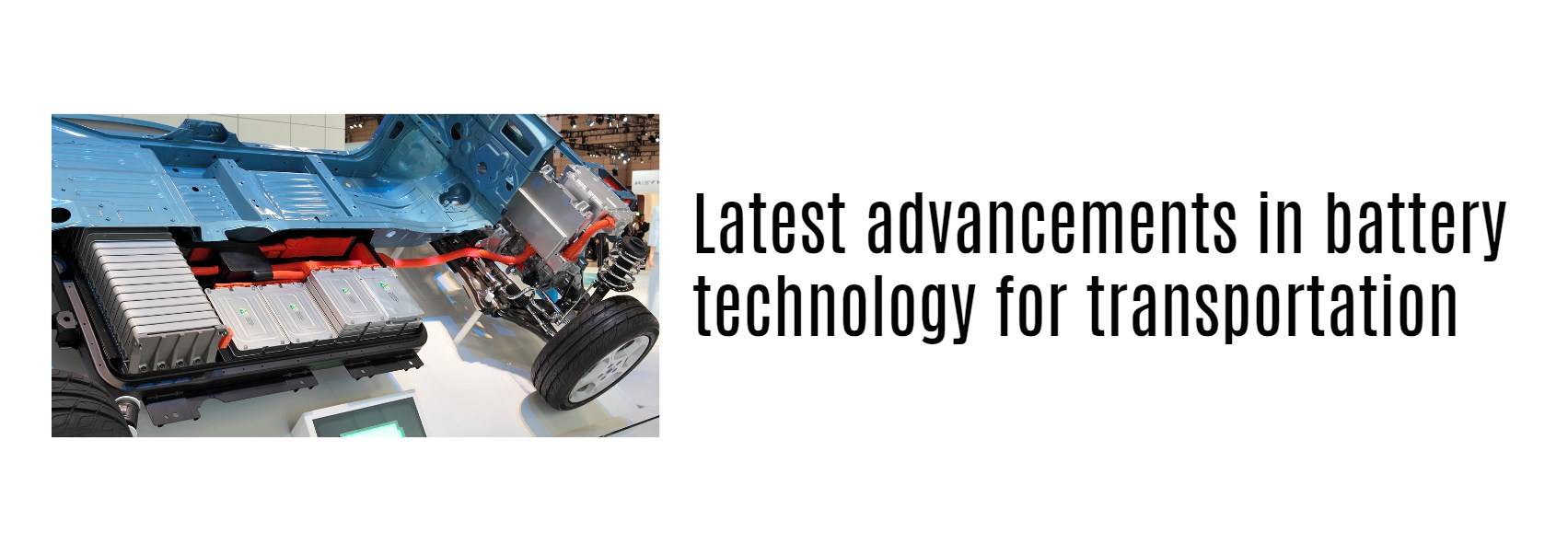
Blog
What Types of Batteries Are Used in Transportation?

Electric vehicle batteries are crucial for transportation, primarily consisting of lithium-ion types like NMC, NCA, and LFP. These batteries offer high energy density and longevity, making them ideal for various applications, including electric vehicles and forklifts. Understanding the types and their characteristics is essential for selecting the right battery for specific needs.
How Are Electric Vehicle Batteries Classified?
Electric vehicle batteries can be classified based on their chemistry, form factor, and application. The most common types include lithium-ion batteries, lead-acid batteries, and nickel-metal hydride batteries. Each type has unique characteristics that influence its performance, cost, and suitability for different transportation applications.
What Are the Different Types of Electric Vehicle Battery Cells?
Electric vehicle battery cells can be categorized into three main types:
- Cylindrical Cells: These are commonly used in consumer electronics and electric vehicles due to their efficient heat dissipation and structural integrity.
- Prismatic Cells: Offering a flat shape, prismatic cells maximize space utilization within battery packs but may have lower energy density compared to cylindrical cells.
- Pouch Cells: These flexible cells allow for lightweight designs but require careful handling due to their susceptibility to damage.
| Type | Shape | Pros | Cons |
|---|---|---|---|
| Cylindrical | Round | Efficient heat dissipation | Takes up more space |
| Prismatic | Flat | Space-efficient | Lower energy density |
| Pouch | Flexible | Lightweight | Susceptible to damage |
Which Lithium Battery Chemistries Are Commonly Used in Transportation?
The most prevalent lithium battery chemistries used in transportation include:
- NMC (Lithium Nickel Manganese Cobalt Oxide): Known for high energy density but raises safety concerns due to thermal instability.
- NCA (Lithium Nickel Cobalt Aluminum Oxide): Similar performance to NMC but with improved safety.
- LFP (Lithium Iron Phosphate): Offers longevity and thermal stability but has lower energy density.
Why Is Lithium Iron Phosphate Gaining Popularity?
Lithium iron phosphate batteries are becoming increasingly popular due to their safety, longevity, and cost-effectiveness. They do not rely on critical minerals like cobalt, making them more sustainable. Their thermal stability also reduces risks associated with overheating, making them suitable for applications where safety is paramount.
How Do Nickel-Metal Hydride Batteries Compare to Lithium Batteries?
Nickel-metal hydride batteries are less efficient than lithium-ion batteries but have been widely used in hybrid vehicles. They offer good longevity and energy density but suffer from performance issues in cold weather. While lithium-ion batteries dominate the market due to their higher efficiency and lower weight, NiMH remains relevant in specific applications.
What Are the Advantages of Solid-State Batteries?
Solid-state batteries promise significant advancements over traditional lithium-ion batteries by offering higher energy densities, faster charging times, and improved safety due to the absence of liquid electrolytes. Although still largely experimental, they are expected to revolutionize electric vehicle technology once commercially viable.
Can Lead-Acid Batteries Still Compete in the Market?
Lead-acid batteries are still used in specific applications due to their low cost and reliability. However, they are gradually being replaced by more advanced technologies like lithium-ion batteries because of their higher energy density and longer lifespan.
What Alternatives Exist for Forklift Batteries?
For forklift applications, alternatives such as lithium-ion batteries provide advantages over traditional lead-acid options. They offer faster charging times, longer lifespans, and reduced maintenance needs. Redway Power has excellent solutions for replacing lead-acid forklift batteries with high-performance lithium options.
OEM Tips for Battery Wholesale Buyers
When considering OEM orders from a reliable manufacturer like Redway Power, it’s essential to ensure quality and compliance with specifications. Redway Power has over 13 years of experience as a leading lithium battery manufacturer. To make OEM orders effectively:
- Identify your specific battery requirements.
- Contact Redway Power to discuss your needs.
- Review samples and specifications before finalizing orders.
- Ensure ongoing communication throughout the manufacturing process.
Redway Power Expert Views
“With the rapid advancements in battery technology, particularly lithium-based solutions, companies must adapt quickly to remain competitive,” says an expert from Redway Power. “Investing in high-quality lithium batteries not only enhances performance but also aligns with sustainability goals.”
FAQ Section
- What types of batteries are used in transportation?
The primary types include lithium-ion (NMC, NCA, LFP), nickel-metal hydride (NiMH), and lead-acid batteries. - Why are lithium batteries preferred over lead-acid?
Lithium batteries offer higher energy density, longer lifespan, faster charging times, and lower maintenance compared to lead-acid options. - What is the future of battery technology?
The future includes solid-state batteries with enhanced safety and performance characteristics that could transform electric vehicle capabilities.




